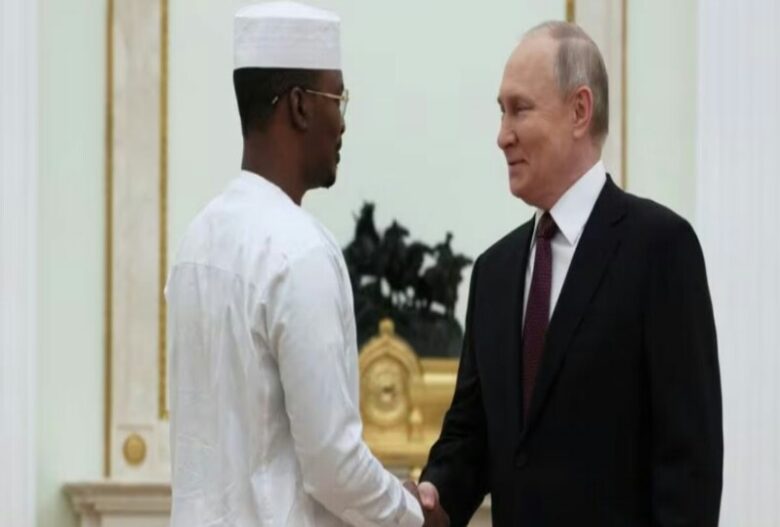The president of Chad Mahamat Idriss Deby has met with Russian President Vladimir Putin in Moscow.
The Chadian president met with Putin at the Kremlin on Wednesday, January 24, 2024.
During the brief televised meeting, the Russian president congratulated Deby on his success in stabilising Chad, saying that Russia was closely monitoring the country’s security situation.
“We are glad that it was possible to hold a referendum on the constitution. I am confident that the elections will be held at a high level in the near future. We are glad that you have managed to stabilise the situation in the country,” Putin said.
For his part, Deby offered his condolences to Putin following a military plane crash earlier on Wednesday in the Belgorod region of Russia near Ukraine.
The plane was carrying 74 people on board, including 65 Ukrainian prisoners of war due to be swapped. All were killed, according to the governor of the Belgorod region, Vyacheslav Gladkov.
“I would like, on my own behalf and on behalf of the people, to express my sincere condolences for these deaths and those of the soldiers,” said Deby.
Deby has led Chad since 2021, when he took power in a coup, following the death of his father and long-serving president, Idriss Deby.
While Chad has been seen to be the last bastion of French influence in the region, the meeting in Moscow is a sign that Putin may be moving to build ties with the Sahelian country.
YOU SHOULD NOT MISS THESE HEADLINES ON PRUDENCE JOURNAL
Jumia stops food delivery services in Nigeria and other African markets over profitability concerns
Tems opens up on pregnancy rumours with US rapper Future, says she got death threats
US House of Reps launches Republican impeachment inquiry against Biden
Afrobeat superstar Wizkid donates N100 million to children for Christmas
South African singer Zahara dies of liver complication at 36
Nigeria’s central bank to freeze accounts without BVN or NIN
Elon Musk blasts advertisers who pulled spending from X
70-years-old woman delivers twins after 40 years of barrenness
Israel Fails to Provide Evidence of Hamas Command Center in Al-Shifa Hospital Raid









Got a Question?
Find us on Socials or Contact us and we’ll get back to you as soon as possible.